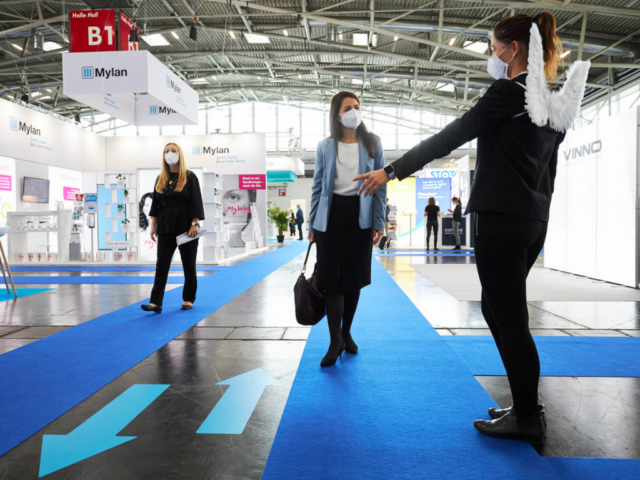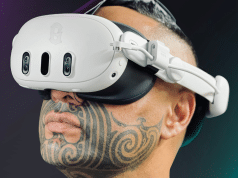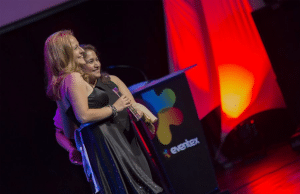Every two years, the scientific congress of the DGGG takes place in changing cities in Germany. Munich was planned as the venue for the congress in 2020. Munich was already known to the DGGG and many participants and officials, as the congress had already taken place here several times in the past, most recently in 2014.
Due to the challenges of the ongoing corona pandemic, DGGG President Prof. Anton J. Scharl and Congress President Prof. Barbara Schmalfeldt decided to hold the congress as a hybrid event. Together with Messe München, they put on a successful event that was both digital and live.
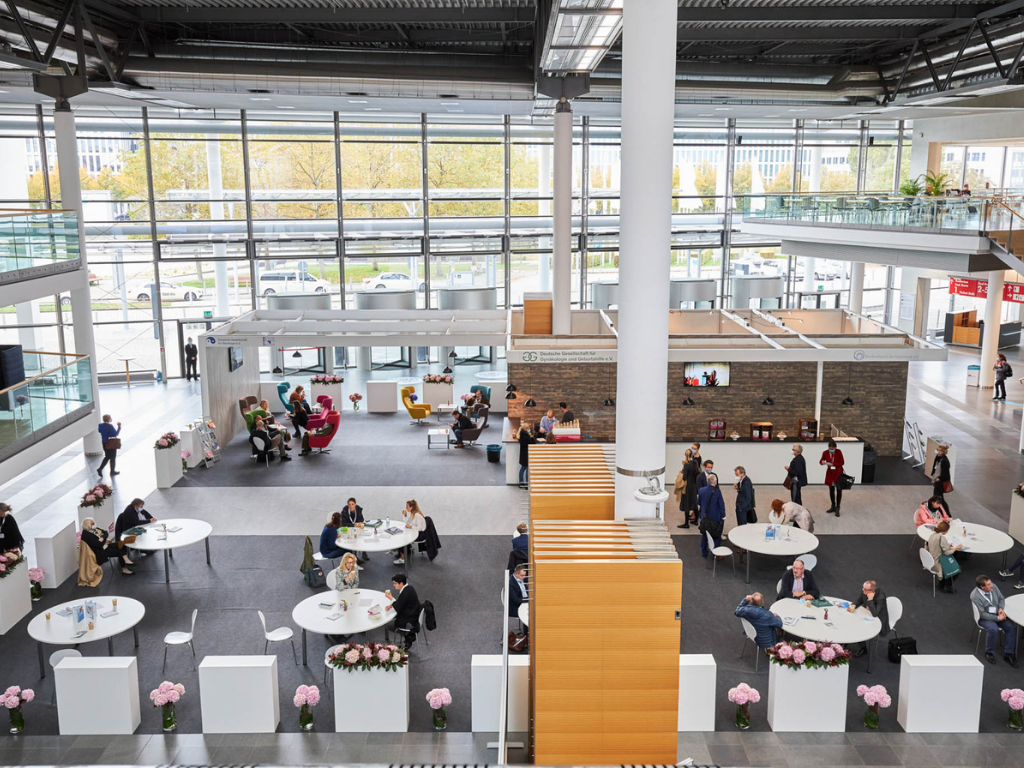
Planning, preparation and realisation
Messe München has the latest technical equipment and actively supported the DGGG in the planning and implementation of both the digital part and the live event on-site. The hygiene concept for the on-site implementation was coordinated in detail with the relevant authorities and included, among other things, defined walkways, hand disinfection and social distancing rules. In order to be able to comply with the prescribed area per visitor, the organisers enlarged the originally planned area and used Hall B1 and the Main Entrance West of Messe München additionally to the ICM (International Congress Center Munich).
On October 7th the time had come: the medical congress started live in the ICM and simultaneously online everywhere in Germany. “We decided on hybrid and were of course now eagerly and anxiously awaiting the first session […] and were delighted to see so many present. It’s on”, is how Congress President Prof. Barbara Schmalfeldt describes the start of the Congress. In total, there were 752 lectures on gynaecology and obstetrics during the four days of the event. On-site, care was taken to ensure that hygiene and social distancing rules were observed, while at the same time the technicians behind the scenes ensured that all digital participants were connected in good time and could actively take part in the lectures and sessions.
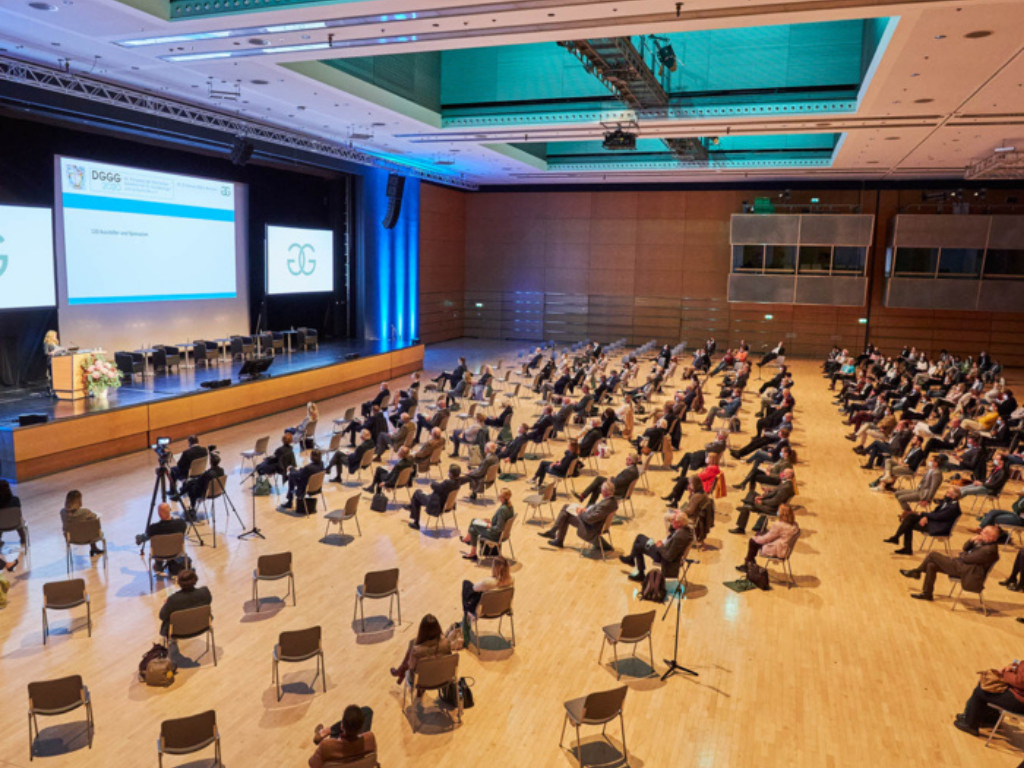
The highlight of the event was the live transmission from the operating theatre of the hospitals in Amberg and Weiden and the university hospital in Tübingen directly into hall 14b of the ICM. The congress participants were able to follow the operation up close on the screens and exchange information with their colleagues on-site and digitally.
After four successful congress days, both the organisers and the participants were more than satisfied. A total of 5,200 participants took part in the congress, 1,700 of them on-site and 3,500 online. Of the total 510 officials, about 1/4 were digitally connected, the rest participated live on site. The DGGG is proud to have been the first professional society to organise a successful hybrid congress together with Messe München.


